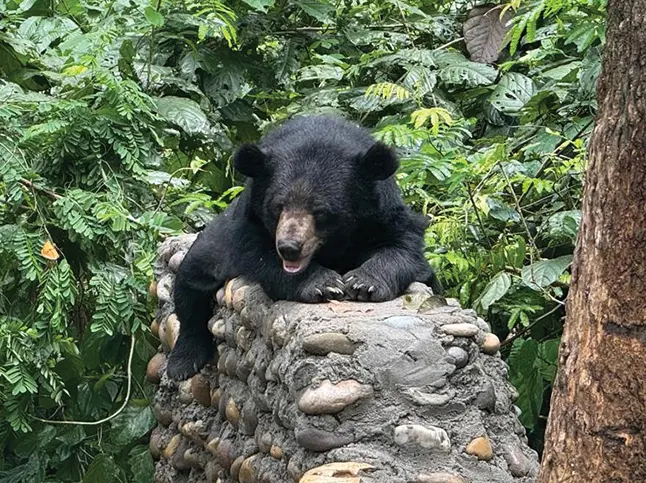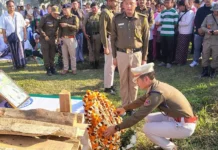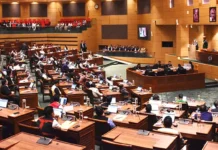[ Bengia Ajum ]
SEIJOSA, 24 Jun: The Centre for Bear Rehabilitation and Conservation (CBRC) located here inside the Pakke Tiger Reserve in the Pakke Kessang district is fast emerging as a very important centre for the rehabilitation of the Asiatic black bears. Established in the year 2002 by the forest department with the support of the Wildlife Trust of India (WTI), so far it has rescued more than 60 orphan bear cubs and rehabilitated them back to the wild in Arunachal Pradesh.
The concept of CBRC took birth in the year 2001 when four orphan Asiatic black bear cubs were rescued. The forest department struggled to keep them in the already crowded Itanagar Biological Park and that led to the effort of establishment of CBRC.
“The Arunachal Forest department led by Chukhu Loma, the then DCF Itanagar with support from Wildlife Trust of India organized an international workshop on bear rehabilitation with the participation of eminent scientists from Russia and the United States to formulate a protocol for initiating the effort of release of such cubs back to the wild. This effort helped the establishment of CBRC. The centre is getting better with each passing year,” shared CBRC in-charge Dr. Panjit Basumatary.
The CBRC is a recognized “rescue centre” of the country by the Central Zoo Authority (CZA). It is the only rehabilitation centre for Asiatic black bears in the entire India.
The centre follows a strict protocol for rehabilitation. “The protocol for rehabilitation has been updated periodically from the lessons learnt during the exercise. We have a 90% success rate in the rehabilitation of the orphaned Asiatic black bears. Bears which could not be rehabilitated back are housed in a lifetime care facility within appropriately sized enclosures, giving opportunity for creating much-needed sensitization of community towards the plight of the species in the wild,” added Dr. Panjit.
The CBRC is also equipped with a Mobile Veterinary Service (MVS) unit which addresses the need for rescue and rehabilitation of distressed wildlife in Arunachal Pradesh. It has trans-located 50 numbers of Hollock gibbons back to the wild in Kamlang TR and Dibang WLS from 2012 to 2015. The MVS unit, till July 2023 has attended to 323 cases of distressed wildlife, which includes Asian elephants, Indian tiger and other important wildlife apart from Asiatic black bear cubs, of which 211 animals (65.3%) have been released back to the wild after treatment and care.
At present a new study on population estimation of Asiatic black bears is being taken up collaboratively by the Pakke Tiger Reserve and the Wildlife Trust of India, with funding from Co-earth Global Pvt Limited. This aims to comprehensively assess the status of Asiatic black bears within the Tiger Reserve. The study is expected to yield insights into their distribution, population size, habitat preferences and occupancy patterns, utilizing advanced methods based on occupancy analysis. The CBRC also focuses on awareness, education and sensitization of the larger community with special attention to school children.





